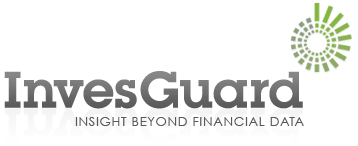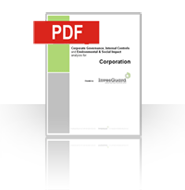February 22nd, 2010
On February 18th Gen-Probe announced its Q4 earnings. As expected, everything was smooth sailing-Product Sales for full year 2009, up 13% and an increase in profits for Q4 that was announced very handsomely in most major publications. See here and here.
Sweeping aside most of these obvious goodies in the announced financial results, there were a few items that stood out when I looked….not too many but still a few that have gone unnoticed in most of the analyses put out by other publications.
1. Short Term Borrowings of $240,841,000 for year ended 12/31/2009 as against zero for the previous year.
2. This is also going to mean an increase in the corresponding interest expense for 2009 as compared to 2008 and also going into 2010 expect to see an increase.
3. ‘Other Long Lerm Liabilities’ have also jumped by $11,021,000. Looking forward to seeing their detailed 10k to understand this one better.
4. According to Gen-Probe’s consolidated statements of cash flow, ‘Cash paid for interest’ has soared from $3,000 in 2008 to $19,55,000 for 2009.
5. Free cash flow for full year 2009 has declined by about 19% to $112 million. Gen-Probe attributes this to some non-recurring items (successful patent infringement lawsuit and collaborative research revenue ) in 2008.
Now onto Gen-Probe’s governance behavior.
Under InvesGuard’s data model, Gen-probe presents few deficiencies in its corporate governance guidelines that results in a few over extended directors. ‘Board Independence’ also needs a little housekeeping.
Under its Internal Control Environment, Gen-Probe scores low on its Audit Committee effectiveness as well as its Audit Committee report quality. InvesGuard has also noted a couple of potential ‘Conflict of Interest’ issues.
More disclosures on its social and environmental front would be welcome particularly any steps it takes to make its products accessible to developing countries or not for profit charitable organizations. Other social environmental data is also not forthcoming and has lead to an overall low score.
More details on InvesGuard’s scores are available only to subscribers. If you would like to buy InvesGuard’s report for Gen-Probe please email info@invesguard.com with ‘Genprobe’ in the subject.
please wait...
Rating: 0.0/5 (0 votes cast)
Tags: Earnings, Gen-Probe prognosis
Posted in Earnings, Gen-Probe, company | No Comments »
February 10th, 2010
There has been plenty of talk about bank compensation figures for 2009. Not just talk but a lot of action too…some real, some threatened. A Special Pay Master was appointed to provide compensation oversight over certain entities, threats of pay driven legislation looms on the banking industry.
Over the past two months, starting with the time that Q4 bank earnings were being published, different compensation statistics were sliced and diced:
1. There was the Wall Street J on compensation ratios
2. Not to be outdone, CNN Money published a general running list on compensation
3. And our very own: InvesGuard’s take on compensation
As a sort of a corollary to this already existing exercise on compensation figures, what I thought would be interesting would be to find out how many of those banks that repaid TARP, thereafter jumped to increase compensation, in any form, structure or format to its senior most employees. ..and this what I found
( Warning: I apologize if this is a socialist sounding blog post, but really, if there are companies who repay TARP just to be able to pay more to their employees, then either they did not need TARP funds in the first place and used it only to ‘play’ the market or if they really needed it, then by repaying it are putting their shareholders, and the general economy in peril.)
Now you have to remember that this is sourced from public filings, so only those compensation increases that affected ‘named executive officers’ of a company have been included. In other words, there may be pay increases for employees who are senior enough but are not ‘named executive officers’. Those are not included here.
Findings:
1. We found Bank of America, rushing in January (after repaying TARP in December) to increase the pay of its brand new CEO as well as that of the President of its Consumer Small business and credit card banking division and the salary of its President of Home Loans. And this after determining salaries for these very same individuals in December 2009 based on the approval granted by the Office of the Special Master for TARP Executive Compensation.
2. American Express also increased base salaries of its CEO, Vice Chairman and Group President and CFO in January 2010. According to the SEC filing, the company’s Compensation committee approved a shift in compensation mix by increasing base salary, while reducing the aggregate compensation that generally could be earned through annual incentive awards and the Company’s cash-based portfolio grant program.
3. Over at Morgan Stanley, in January 2010, newly elected Chief Financial Officer, Ruth Porat, was awarded a salary of $750,000, a far cry from the $322,903 paid to the previous CFO Colm Kelheller for 2008. Of course, his cash bonus for 2008 ($2.9 million) more than made up for any salary deficiency.
4. In October 2009, State Street approved retention awards in the form of restricted stock and deferred stock to selected executive officers.
I have to add here, that there are some companies whose top executive officers continue to earn either zero or $1 salary or have given up some part of compensation even after repaying TARP and being under no obligation to do so.
1. Capital One announced in January 2010 that its CEO Mr. Fairbanks will continue to earn zero salary or bonus .
2. At Sterling Bancshares (SBIB), CEO Mr Bridgewater waived his right to receive any restricted stock units which were scheduled to vest in December 2009. According to the company’s filings, “Mr. Bridgwater voluntarily and unilaterally decided to execute this Irrevocable Waiver due to the unprecedented operating environment for the Company and financial institutions across the country, as well as due to the Company’s operating results for the third quarter of 2009.”
3. At Morgan Stanley, chairman and ex CEO John Mack gave up his year end bonus (were they actually giving him one?). New CEO has also “recommended” that he be paid no bonus for 2009.
4. At Old National Bancorp, CEO Mr. Jones and the board “mutually agreed” to pass on any bonus for 2009.
We are still pouring over data and there may be a second part to this post. Keep checking back.
please wait...
Rating: 3.0/5 (5 votes cast)
Tags: Bank of America, bankers pay, capital one, morgan stanley, state street
Posted in Bank of America, TARP Repayment, company | No Comments »





